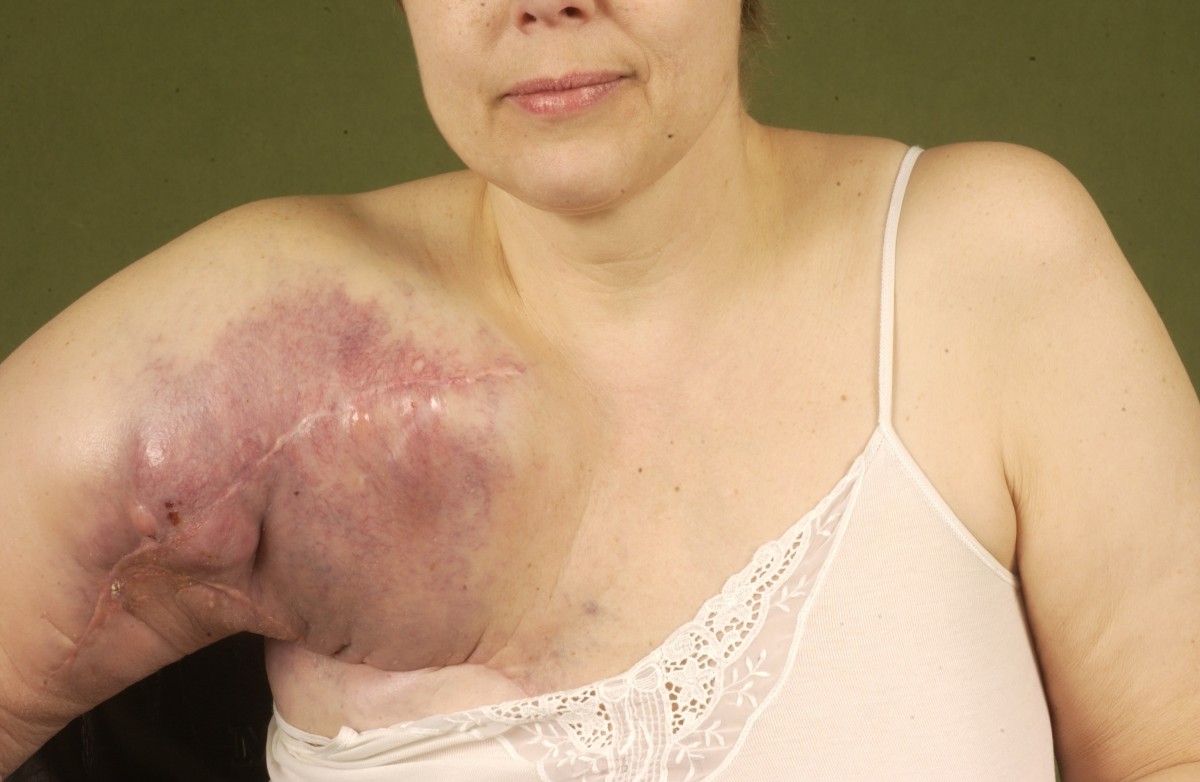Soft Tissue Sarcoma Causes, Symptoms, Diagnosis and Treatment

What Is Soft Tissue Sarcoma?
Soft tissue sarcoma is a form of sarcoma which arises in connective tissues. A sarcoma is a cancer that arises from transformed cells of mesenchymal origin.
Soft tissue sarcoma occur in soft tissues which include fat, muscles, fibrous tissues, blood vessels, or any other tissue which serves to connect and protect the organs of the body.
Although they can develop in any part of the body, the usually develop in arms and legs, along with organs including womb, stomach, skin and small bowel.
There are approximately 50 different types of soft tissue sarcoma. Some types are more common in children, while other target adults over the age of 30.
Some of the types include:
- Adult fibrosarcoma
- Alveolar soft-part sarcoma
- Angiosarcoma (includes hemangiosarcoma and lympangiosarcoma)
- Clear cell sarcoma
- Desmoplastic small round cell tumor
- Epithelioid sarcoma
- Fibromyxoid sarcoma, low-grade
Causes Of Soft Tissue Sarcoma:
The underlying cause of soft tissue sarcoma is not fully understood.
It is thought to arise from genetic mutation, where the DNA of the cells of soft tissues are faulty and lead to uncontrollable division of the cells. This leads to the formation of tumors.
Possible Risk Factors May Include:
- Age
It is more common as people get older.
The highest diagnoses is for people above the age of 50 - Genetic conditions
Neurofibromatosis
Gardner’s’ syndrome
Li-Fraumeni syndrome
Retinoblastoma - Previous radiotherapy treatment
- Exposure to chemicals
Symptoms Of Soft Tissue Sarcoma:
During the initial stages, no symptoms are exhibited.
As it progresses, the following symptoms may occur:
- A lump or swelling which:
is increasing in size and is bigger than 5cm (2in)
is painful or tender
is deep in the body (i.e. not just under the skin)
Comes back after being surgically removed. - Pain, when tumor presses on a nerve
Diagnosis Of Soft Tissue Sarcoma:
Soft tissue sarcoma can be diagnosed via:
- Imaging tests
CT scan
MRI
Ultrasound
PET scan - Surgical biopsy
Treatment Of Soft Tissue Sarcoma:
Treatment of soft tissue may depend on the severity of the soft tissue sarcoma.
Treatment options include:
- Surgery
- Chemotherapy
- Radiation therapy
- Targeted drug treatment
Imatinib (Gleevec)
Sunitinib (Sutent)
Regorafenib (Stigvara)
Pazopanib (Votrient)
Related Articles:
Bursitis Causes, Symptoms, Diagnosis and Treatment
Folliculitis Causes, Symptoms, Diagnosis and Treatment
Carcinoid Syndrome Causes, Symptoms, Diagnosis and Treatment
Buerger’s Disease Causes, Symptoms, Diagnosis and Treatment
Shingles Symptoms, Causes, Diagnosis and Treatment
Chilblains Causes, Symptoms, Diagnosis and Treatment
Cradle Cap Causes, Symptoms, Diagnosis and Treatment
Contact Dermatitis Causes, Symptoms, Diagnosis and Treatment
Cold Urticaria Causes, Symptoms, Diagnosis and Treatment
Henoch Schonlein Purpura (HSP) Causes, Symptoms, Diagnosis and Treatment
Pilonidal Cyst Causes, Symptoms, Diagnosis and Treatment
Stevens-Johnson Syndrome Causes, Symptoms, Diagnosis and Treatment
By : Natural Health News




